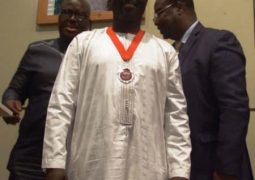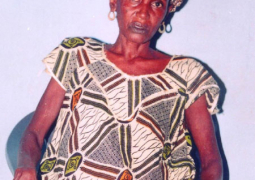It is gratifying to hear the minister of the Interior state that the government and the media are not enemies, but partners in the development process of this country.
Ousman Sonko, who presided over the opening ceremony of the fourth anniversary of the Young Journalists Association of the Gambia (YJAG), Saturday told journalists that they like any other Gambian have a role to play in the development process of this country.
This is something that we have over the years highlighted on these pages.
It has always been very strange to us that most people regard the journalist as the enemy of the powers that be.
As journalists, we do not see ourselves in that role.
What the journalist is, and sees as his/her role in the society, is to serve as a watchdog that keeps an eye on developments in society, and reports or comments on them.
In fact, this is a mandate given to the journalist by the constitution.
The journalist’s job requires him or her to report on both the pleasant and the sordid aspects of life as lived in the society.
When the journalist writes a favourable report, from the perspective of the powers that be, he or she is applauded as a good boy or girl.
However, when the reports are critical, the journalist is vilified, and branded as public enemy number one.
News consumers have to learn to take the good with the bad!
The journalist does not create news; he or she reports it as he or she sees it, whether it’s good news or bad news.
When the news is bad, the journalists report it, just as they would do when it is favourable.
So they are neither friends nor enemies of anybody and, definitely, not of the powers that be!
Indeed, who would want to be considered an enemy of the powers that be?
What is true, however, is that the journalist is a partner in development, as the minister rightly stated.
The journalists are partners in development, because by reporting the bad news, they are drawing the government’s and society’s attention to drawbacks that need improvement.
Even when reports produced by journalists are seen, in some quarters, to be unfavourable, the public should take them as a call for corrective measures, put forward by partners in development.
And when they report on the positive aspects of society, they are equally highlighting the good work of persons in society including leaders at all levels, and helping to consolidate their strengths.
It is for this reasons that we commend the minister for recognizing the role of journalists in this country, and do hope that we will see closer collaboration between the government and the media.
“It’s not the world that’s got so much worse, but the news coverage that’s got so much better.”
G.K. Chesterton
Read Other Articles In Article (Archive)




